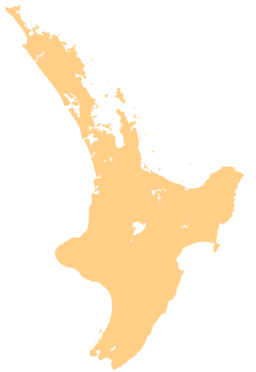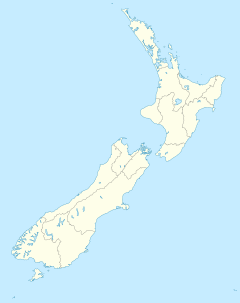Lake Parangi facts for kids
Quick facts for kids Lake Parangi |
|
|---|---|
| Location | Otorohanga District, Waikato region, North Island |
| Coordinates | 38°2′15″S 174°48′41″E / 38.03750°S 174.81139°E |
| Type | supertrophic |
| Primary outflows | seepage |
| Catchment area | 122 ha (300 acres) |
| Basin countries | New Zealand |
| Surface area | 12.18 ha (30.1 acres) |
| Max. depth | 17.6 m (58 ft) |
| Surface elevation | 46 m (151 ft) |
Lake Parangi is a small lake located in the Waikato region of New Zealand. It sits about 3 kilometers north of Kawhia. This lake is special because it's known as a "supertrophic" lake. This means it has a lot of nutrients, like phosphorus and nitrogen. When there's too much of these nutrients, tiny green plant life called phytoplankton can grow very quickly. This often happens after a few calm, sunny weeks. Lake Parangi was formed by dunes, which acted like a natural dam.
Animals and Plants in Lake Parangi
Lake Parangi is home to several types of animals and plants. You can find freshwater mussels and eels living in its waters. There are also native water plants like pondweed (Potamogeton ochreatus) and watermilfoil (Myriophyllum triphyllum).
Challenges for Lake Life
Unfortunately, some new species have been introduced to the lake. For example, catfish are now found there. Also, a plant called Canadian Waterweed has spread widely throughout the lake. These introduced species can sometimes cause problems for the original plants and animals. The quality of the water in Lake Parangi is also getting worse, which can make it harder for the native wildlife to thrive.



